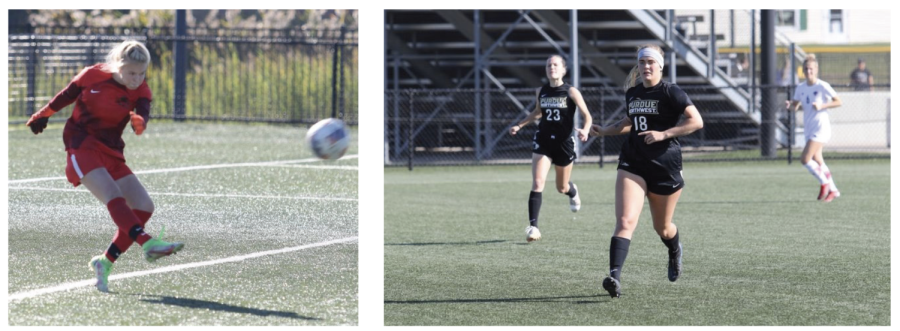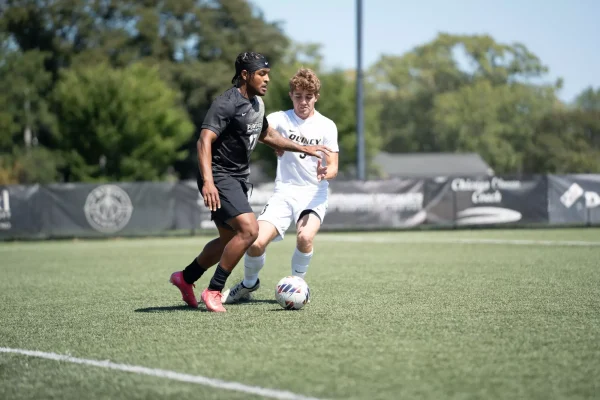Pride players not surprised probe found abuse in U.S. women’s soccer
Pride women soccer players were not surprised that a national investigation commissioned by the U.S. Soccer Federation found female soccer at all levels and ages experience gender bias.
A national report on systemic abuse in women’s soccer did not surprise PNW women’s Pride, whose players and coaches say they have personally experienced the problems.
“Personally, I have dealt with verbal abuse my entire life, ranging from my classmates to coaching staff,” said Rozlyn Mehall, a junior Biological Science major who plays midfield on the Pride women’s soccer team. “Females are always doubted simply because of our gender. I have heard many remarks … about females being perceived as weak or sensitive.”
An investigation commissioned by the U.S. Soccer Federation and conducted by former U.S. Deputy Attorney General Sally Yates revealed routine abuse and misconduct that is systemic to women’s soccer, beginning in the youth leagues. The report found the abuse reflects a culture that “normalizes verbally abusive coaching and blurs boundaries between coaches and players.”
Mehall’s fellow midfielder Emily Ross, a senior Criminal Justice and Behavioral Science major, said she has also experienced misconduct through her athletic journey.
”Growing up I did face a lot of verbal abuse from coaches,” she said. “I would say half of my coaches did. When this would happen, I would just focus on what I could control with myself. I also would just remember why I was there in the first place.”
It is not only the athletes who experience gender bias. Female coaches do as well.
“As a woman in our profession we have to constantly keep proving our worth,” said Mary Whisler, PNW women’s soccer head coach. “Any new job we take we have to prove ourselves time and time again because the assumption is that we only got hired because we are a woman. A man is assumed successful until proven otherwise.”
Whisler said the problem permeates much of the game.
“From my experience, refs treat women differently,” she said. “Statistically, male coaches are more likely to sexually assault young women compared to men they coach.
“From what I’ve personally witnessed, verbal abuse is rampant from males who coach young women or girls,” Whisler said.
The result of the abuse may be stronger athletes.
“I’d say … that women are more disciplined and dedicated to the game, but because of fear from these obstacles,” she said.
Mehall agrees that the abuse of coaches or others has just made her tougher.
“I have never let their crucial words affect me and my work ethic,” she said. “If anything, all my doubters and haters motivate me to prove them wrong.”



